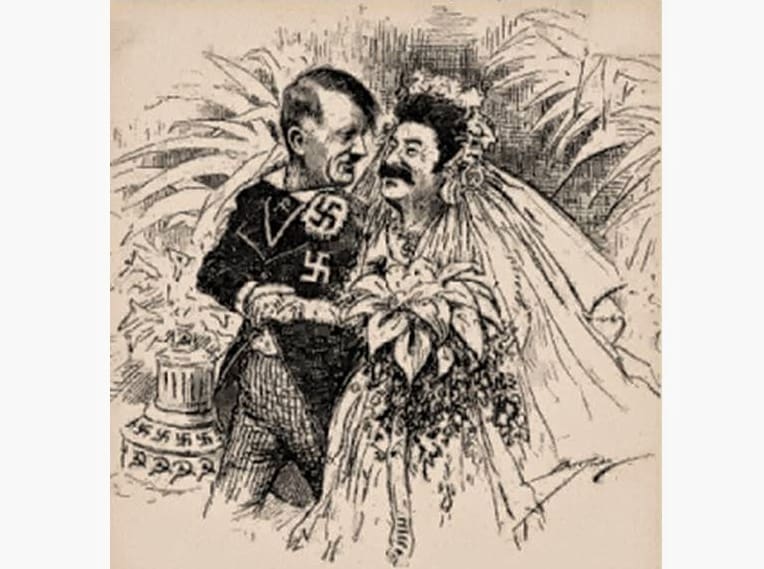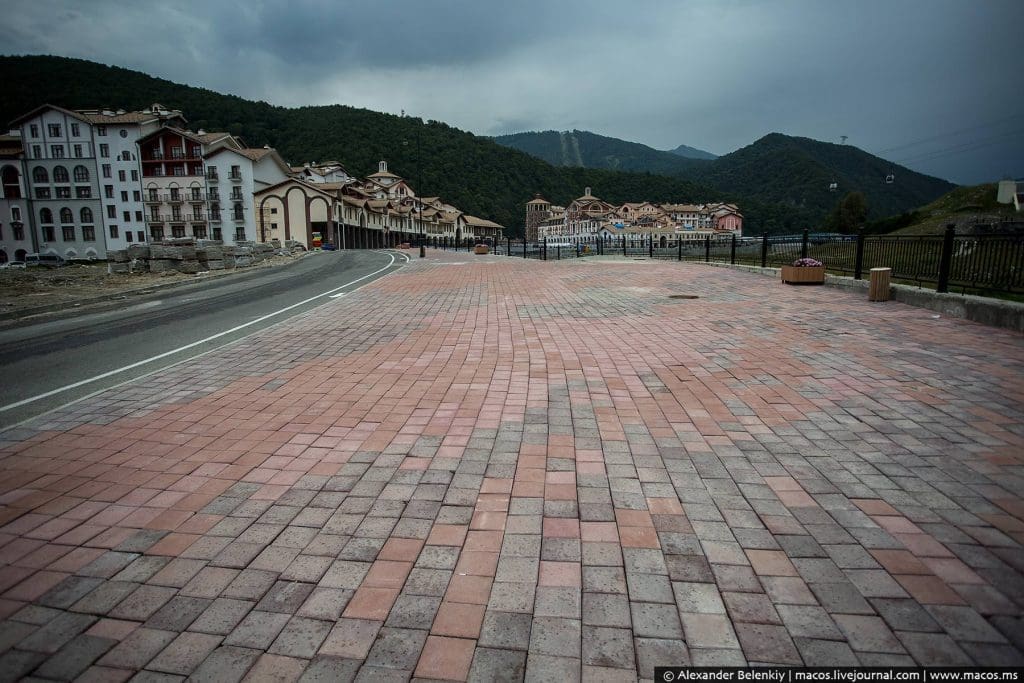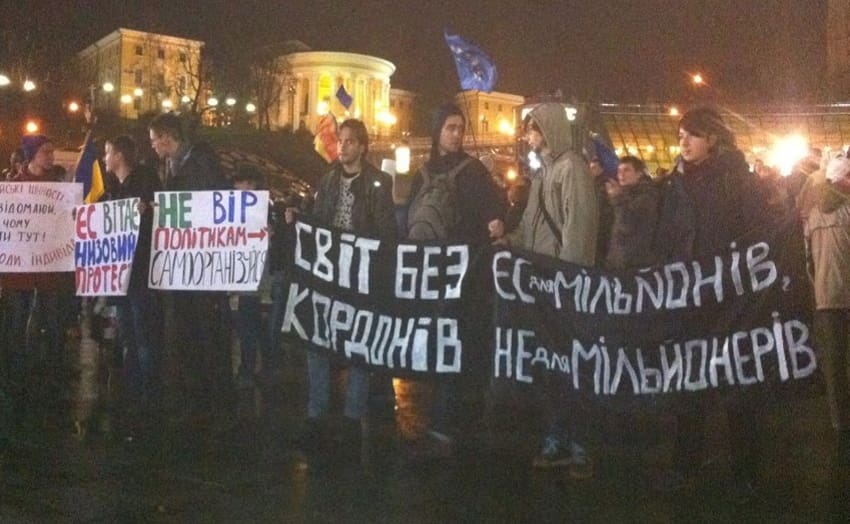AntiNote: This article first appeared last month on the Permanent Crisis blog under the title The Left Flounders as Reaction Grows Ever Stronger. Reprinted with the permission of the author and with Permanent Crisis’ internal links included—both for citations’ sake and because their Glossary is highly useful (as is their body of work in general, it should be said). External link citations have mostly not been reproduced, but sticklers can find them in the original.
Though he had clearly been preparing this piece well before the Charlie Hebdo shootings and the subsequent wave of Islamophobic violence in Western Europe, and well before the SYRIZA victory in Greece, Walker articulates and puts in historical context some important features of the discussions that have arisen around both of these developments, framing the struggle against neoliberal capitalism in part as one between fascists and anti-fascists—both of whom often, awkwardly, share anti-capitalist sentiments.
As he points out, 2014 was the year that many on the Western Left started noticing this little wrinkle…though many did not (look no further than the Monday Peace Vigils in Germany, Austria, and right here in Switzerland). The Antidote Writers Collective is firmly convinced that it’s about time we start confronting this matter head-on. Fascism is not a 20th century problem; it exists all around us, sometimes right under our noses, and we need to get better at calling it what it is. But more on that later. Here’s Walker:
The Left Flounders as Reaction Grows Ever Stronger
by Walker of Permanent Crisis
As the crisis of neoliberal society grinds on, the question is not whether the dominant social forms of the last 35 years will be overthrown, but whether it will be the left or the right that overthrows them. Beginning in 2011, there was a brief upsurge of progressive protest around the world that, despite its marked limitations, offered some hope of confronting the crisis. That moment seems to be past. Protest continues, of course, but it has moved further and further away from a solid grasp on the sources of its discontent. Increasingly, even those who understand themselves as progressives are supporting reactionary directions for resistance.
2014 in Review
The tone for 2014 was set in the first week of January with two unapologetically reactionary assaults on the global neoliberal order: the Islamic State of Iraq and Syria seized Fallujah, its first major conquest, and Nigerian President Goodluck Jonathan signed into law a measure prohibiting all gay relationships and all gay organizations. Shortly thereafter, in mid-January, the Egyptian “Revolution” suffered its final humiliation, as the referendum on the military’s new constitution passed with a vote of 98.1 percent in favor.
These were symbolically potent events — direct attacks on cherished neoliberal ideals of open borders, cultural tolerance, and procedural democracy — whose practical impact was limited by their peripheral location in global society. Yet reactionary nationalism grew steadily more powerful in centrally important countries as well during 2014.
China’s Xi Jinping is assembling a counterintuitive but potentially powerful amalgam of Confucian “tradition” and Maoist slogans. In India, Narendra Modi won a clear victory in the May general election and is already exploring a fundamental redirection of national identity toward Hindu fundamentalism. Recep Tayyip Erdoğan, after comfortably winning Turkey’s first popular presidential election in August, has spoken repeatedly against the secular foundations of the state. In Japan, Abe Shinzō presses forward with his institutional remaking of the state and rehabilitation of Japanese militarism, laying the foundations for the revival of aggressive nationalism.
The European Parliament elections in May showed strong gains for anti-establishment far-right parties; the UK Independence Party shockingly won the popular vote for the UK delegation, the first time since 1906 that a party other than Labour or the Tories had won in a national poll. In France, where the far right has infiltrated most deeply into domestic politics, the nativist Front National could soon become the second strongest party in the country, and both of the establishment parties are moving steadily toward it in an attempt to stave off its rise.
Most disturbing of all is Russia’s rapid development toward a genuine neofascism. The Ukraine crisis in March and the collapse of the price of oil in December will be remembered — if we are unlucky — primarily for the way in which they accelerated Russia’s movement down this path. In contrast to China, India, Turkey, and Japan, whose leaders maintain an unstable hybrid of neoliberal and neofascist elements in their politics, economic and geopolitical forces have pushed Russia in only one direction. The most credible opposition figure is Alexei Naval’nyi, who is an even stronger and more authentic ethnic chauvinist than Putin.
These developments are extraordinarily dangerous. Yet the Left has regarded them with equivocation. With a genuinely progressive alternative to late neoliberalism still beyond its imagination, the Left has split between the only two current alternatives. One part is drawn, unthinkingly, toward the liberal voices warning against nationalism, nativism, and authoritarianism; the other part is drawn, unthinkingly, toward the only vigorous current position opposed to neoliberalism: the collectivism and anti-imperialism espoused by the new fascism.
Liberalism : Fascism :: Neoliberalism : Neofascism
I invoke the category of “neofascism” not as a term of abuse but as an analytical category. Fascism was a very particular response to the interwar crisis of classical liberal society — i.e. the free market and limited government ethos that dominated the nineteenth century and was briefly revived in the 1920s after the serious disruptions of World War I, only to collapse in the Great Depression. Fascism was a genuine negation of the specifically liberal form of capitalist society and its hegemonic forms of belief and organization: not the individual but the collective, not cosmopolitanism but nationalism, not the market but state planning, not the abstract but the concrete, not the quotidian but the heroic.
These reversals were what defined the political and cultural turmoil of the 1930s, not just in Germany but in the US, the Soviet Union, and around the world. Fascism, social democracy (the New Deal), and actually existing socialism were all variations on the search for a post-liberal capitalism — even if two of three understood themselves to be ending capitalism as such.
Fascism was reactionary because it was not a viable basis for a new society, but a path of accelerating destruction and chaos. Social democracy and actually existing socialism were progressive because each represented a true alternative to liberal society under different national conditions following the collapse of the global economy in the early 1930s.
The telltale mark of fascism was its fixation on race and culture, to which it traced (depending on the people in question) liberal values and dysfunctions as well as the hope for a post-liberal society. It lodged in geopolitics and racial/cultural essence what was, in reality, a set of transnational economic relations that unevenly marked every nation. It pursued a fundamentally collective interest, but within the strict bounds of the nation — excluding the foreigner and seeking to eliminate the internal alien. In this sense, it was a more complete negation of liberal society’s defining universality than either social democracy or actually existing socialism, which both retained a claim on universality but demanded that it be substantive rather than merely formal.
Fascism was reactionary precisely because it foreswore the progressive potential within liberal society. It was a path to catastrophe because it was a pure negation.
Today, neofascism aims to resolve the contradictions of neoliberal society in a parallel manner. Inequality and selfish individualism are defined as “Western” or “American” in nature. The global economy and US foreign policy are conflated as “imperialism” and cast in conspiratorial terms rather than understood as the abstract product of neoliberal social relations. Evidence of neoliberal beliefs and practices within these countries is denounced as external “cultural imperialism” or internal betrayal of the nation. Growing pressure is brought to bear against internal aliens who fail to conform to the putative national culture. Increasingly, allegations are made that these internal aliens are conspiring with the foreign imperialists against the nation. (For the beginnings of an explanation of the sources of reactionary nationalism: “The cosmopolitan imagination of neoliberalism”.)
Dusted Off and Polished Up: Features of the New Fascism
What of a positive program? In contrast to the neoliberal sensibility, which lives solely in the present, the neofascist impulse is immersed in history. In particular, it aims to rehabilitate those figures of national history that have come into disrepute during the neoliberal period. For Japan, it is the war criminals of World War II. For China, Mao. For Turkey, the Ottomans. Teaching the revised history in the schools is a common pursuit, as is pressuring the media and intellectuals into silence on its evasions.
Neofascism defines ethnic identity and collective feeling as uniquely Russian or Chinese or Indian. The irony in this is worth emphasizing. An intellectual formation that understands itself as growing from cultural particularity must carefully obscure the universality of its form.
The content of neofascism is drawn selectively from different national practices that are nonetheless parallel in substance. Though the modern nation is no more than two hundred years old, neofascism positions itself as the latter-day descendant of an ancient tradition — adapted, of course, to conditions of national competition in the present.
(“The great secret of modern nationalism has always been that its form is the same everywhere, no matter what content it is filled with. It is the logic of the commercial brand raised above the mundane realm of retail: desperate to assert a difference that doesn’t really exist.”)
Unlike the decentralized and fluid market model of society celebrated under neoliberalism, neofascism demands unity — and the expression of this demand is a new centralization of political power featuring the reemergence of the unfamiliar figure of The Leader.
After just two years, Xi Jinping has gathered greater power unto himself than anyone since Deng Xiaoping. Unexpectedly, in light of the farcical conclusion to his first term in 2007, Abe Shinzō has shown himself the most vigorous Japanese prime minister in many years, pushing through one after another of his nationalist priorities alongside a robust set of Keynesian economic initiatives. Narendra Modi’s election has upended Indian politics, remaking the BJP into an organization that he personally dominates and bringing state-level BJP governments to power in a string of subsequent local elections.
The centralization of power is not simply a matter of these leaders running roughshod over their societies — they are genuinely popular despite their authoritarian style. The structurally given possibilities for national politics in the age of neoliberal crisis are increasingly clear: either a vigorous system, centralized around a single individual, that is capable of pursuing basic social restructuring, or a pluralist system frozen in dysfunction, as in Pakistan, Italy, or the United States.
Don’t Panic. That Will Only Make It Worse.
The strength of neofascism should not be exaggerated. It remains a nascent form of ideology and politics, incompletely realized and widely contested. As long as neoliberalism’s crisis is held at bay, the contradictions of the present will remain only imperfectly expressed, and neofascism will fall short of its potential as a coherent social imaginary.
Perhaps most significantly, the revolutionary subject of all the 1930s projects for a post-liberal society — the masses — was liquidated by neoliberalism and has not yet been reconstituted. And though hobbled, the neoliberal global economy continues in motion. As a result, though the cultural and political claims of neofascism are now widespread, a neofascist economic program remains underdeveloped everywhere. Only in Russia has it made significant progress, and even there important divisions and reservations remain within the elite.
A neofascist economic vision would aim to reconstitute the nation as a fully integrated organic unity capable of fighting for supremacy in global competition. Such an approach resonates with certain backward-looking progressive instincts, nostalgic for the days of national capital, when democracy and sovereignty were inseparable ideas and the state directed the market rather than the reverse.
This is the worst possible direction for politics. Let me repeat and emphasize: the politics of economic nationalism is the worst possible political path. Far worse even than the indefinite persistence of neoliberalism would be.
Economic nationalism is the reactionary response to the economic dysfunction of neoliberalism. It would remake a global economy now marked by transnational flows, in which competition is primarily conducted between private companies, into a zero-sum struggle among states (and militaries) aiming to secure adequate markets and resources that they alone can exploit. That’s the short version of what led to World War II. It points not toward equality and democracy but toward disaster.
Thus the foundation stone for a progressive alternative to both the neoliberal status quo and the neofascist program must be: save the global economy, but do it in the only way possible — by making it just.





